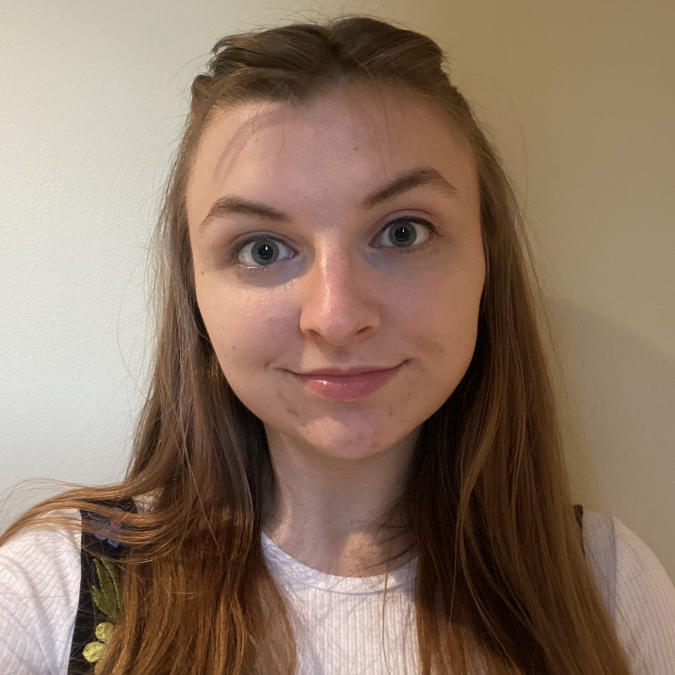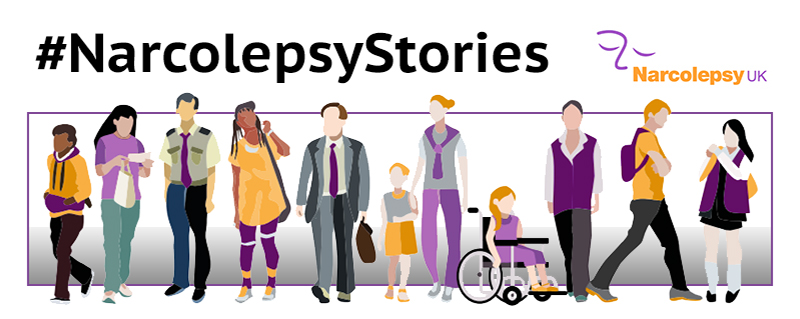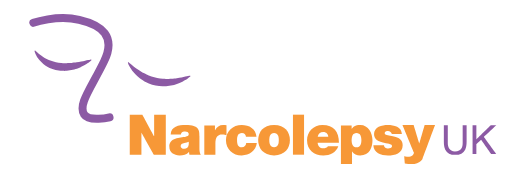When I was at school, particularly in sixth form, I would take a nap everyday after school. I would really struggle to stay awake all day and would usually fall asleep in the car or on the bus on the way home. I always felt fatigued, something I and others often put down to ‘hormones’, staying up too late or my vegetarian diet. My sleepiness became my ’thing’, a defining feature. There are countless times when I fell asleep by accident when alone and I would wake several hours later. These are the ‘episodes’ that frustrated me the most. It was something other people would joke about, though not in a nasty way, and napping was almost a hobby. I tried to hide my napping and would often underplay the length of how long I had slept.
When I went to university the napping became easier to hide as I was in a room by myself in halls. I didn’t have anyone checking up on me and the flexibility of university meant I could wake up, go to a lecture, come home and go to sleep again. I would find it really difficult to stay awake in lectures, particularly two-hour lectures, but I would even struggle through those that were just an hour long. The hot and stuffy rooms and the inability to get up and move about would make it really difficult to stay awake and concentrate. I’m sure I fell asleep in multiple lectures, but no one ever commented on it. I would ‘come to’ and feel embarrassed. This led to me avoiding lectures. I also really struggled with reading, which is a massive part of university life, as I would fall asleep a few pages in to a book or I would lose concentration. Socialising was also really difficult as I would often be too tired to go out or to attend socials.
I started dating my boyfriend at the beginning of my third year. The sleep became more difficult to hide. Spending time with him, sharing the same routine and, in particular, sleeping in the same bed made me realise that something might not be right. He was able to stay awake and alert all day on the same amount of sleep as me, yet I was flagging by 3pm. He mentioned narcolepsy in passing, almost as a joke and it stuck with me.
I often feel I need to prove my disability to others before I am taken seriously.
After reading more about the condition on the Narcolepsy UK website, I decided to book an appointment with my GP to talk about my sleepiness. I had thought about doing this a few times previously but always thought I would be wasting their time and that my symptoms wouldn’t be taken seriously. My GP ran some tests to rule out other possible causes of my symptoms and gave me some sleep-related questionnaires to complete. They were unable to find an obvious cause for my symptoms but my questionnaire scores were unusual enough to refer me to a specialist.
I had a few admin-related issues with my referral but was seen by a consultant in sleep medicine in September 2019. My consultant suggested narcolepsy as a possible diagnosis. She also suspected cataplexy as I had described a few episodes where I felt my head droop, knees buckle or wrists going weak when laughing. I underwent a polysomnogram and multiple sleep latency test in December 2019 and was diagnosed with narcolepsy and cataplexy.
Throughout the journey to diagnosis, I had been working a 9-5 job, which further highlighted the issue of excessive daytime sleepiness. At multiple times in the day I would feel like I was about to fall asleep, I would lose concentration and I really struggled to stay alert in meetings. I found it really helpful to be open with my employer, letting them know about my health and the tests I was undergoing. My manager was really helpful and mindful of my symptoms. Just before I received my diagnosis, I relocated to London and changed jobs to work in an office-based admin role at a university. My new manager has also been great and really supportive. I feel I can be open and speak to them. They don’t underestimate me or make my condition a big deal, which I really appreciate. This is how it should be for everyone.
Since starting on medication, I have noticed a massive improvement in my condition. I enjoy going to meetings now. I don’t feel tired half way through the day and there have been times when I have been able to go for several days without needing to take a nap. There have, of course, been some downsides to taking medication. I was taking the contraceptive pill which interacts with modafinil so had to consider new forms of contraception. I have also struggled with anxiety since my diagnosis and starting on modafinil. This is worst at night. I used to fall asleep really quickly, within minutes, but since starting modafinil I have found it more difficult to fall asleep, which exacerbates my anxiety and makes it even harder to sleep. This is a work in progress for me. I have had CBT, which has really helped and I have invested in a Lumie lamp. It’s odd to find that with narcolepsy I sleep too much yet often cannot get to sleep.
People with narcolepsy have the right to live in a society that understands and recognises the impact of narcolepsy on themselves and their families and carers. This is the first core right in the Narcolepsy Charter and underpins all the other rights. Something that really frustrates me with narcolepsy is the lack of awareness. Although I am disabled, I often feel like I am not “disabled enough” for people to appreciate the impact the disorder has on my day-to-day life. It is almost as if I need to prove my disability to others before I am taken seriously. I am really lucky that I can discuss my condition with my employer, friends and family without fear of discrimination. Being open has meant that narcolepsy doesn’t impact my life as much as it could. I know there are probably many people with narcolepsy who can’t be open for fear of discrimination.
If society was more aware of narcolepsy, what it actually is and the impacts it has on a person’s life, then it would definitely ease a lot of the challenges. A better understanding feeds into being aware of the symptoms and hopefully would lead to earlier diagnosis. It would hopefully also mean that people wouldn’t feel embarrassed about the condition or feel they would be judged.
18th September 2020


This post is part of Narcolepsy UK’s #NarcolepsyStories project, where people with narcolepsy write frankly about what it’s like to live with this debilitating disability.
Narcolepsy is a spectrum disorder that affects everyone differently. However, people with narcolepsy will always find they have a lot in common, sharing their experience of the difficulty in securing a diagnosis, the years it takes to find a suite of medications that helps combat symptoms, the effect that extreme sleepiness can have on education, work and relationships and impact that cataplexy can have on confidence.
It is our hope at Narcolepsy UK that the #NarcolepsyStories project will contribute to our vision as set out in the #NarcolepsyUKCharter to provide the respect, care and support that people living with narcolepsy and their carers deserve.
How can you help?
- Spread the word by sharing these stories on your social media channels, using the hashtag #NarcolepsyStories.
- Put your signature to the #NarcolepsyUKCharter.
- Get involved with #WorldNarcolepsyDay on 22 September.
- Make a donation to Narcolepsy UK.
- Contribute your own story to the project by sending an email to stories@narcolepsy.org.uk.
